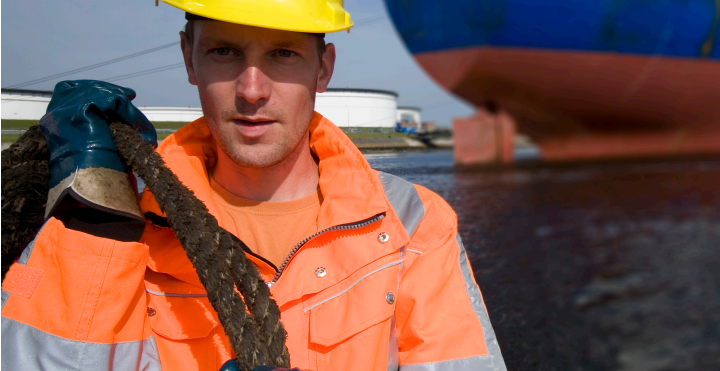An independent study commissioned by the Institution of Occupational Safety and Health (IOSH) and the International Transport Workers’ Federation (ITF) and carried out by Cardiff University was published on Friday 9 September.
The study, Experiences of arrangements for health, safety and welfare in the global container terminal industry, could pave the way for significant improvements in the health, safety and welfare of workers in the global container port industry. It identifies continuing risks, causes for concern and flaws in the behavioural management systems commonly employed by operators. It also offers clear pointers to improvement.
Researchers were granted unique workplace access by six major port/global network terminal operators, which are anonymised in the data. The report recognises the ongoing health and safety progress made by port operators. But it highlights attention needs to be paid to seven areas of concern, which are:
- Under-reporting of health and safety outcomes: even within the context of modern health and safety management models, levels of injury and risk are being under-reported
- Lack of provision for gender: the study found that there is very little attention to the specific needs of women workers
- Limitations of behavioural management systems: the report finds the widely-used behavioural occupational safety and health (OSH) model inferior to participative systems, which emphasise worker involvement as partners in safety and health management
- A focus on immediate safety risks at the expense of longer-term effects on health
- Subcontracting undermining reporting and a safety culture: the report shows that health and safety outcomes are worse for subcontracted workers
- Productivity targets undermining the will to prioritise health, safety and welfare
- The lack of a consistent approach to OSH management, at least in terms of applying the highest standards regardless of country.
ITF president and chair of its dockers’ section, Paddy Crumlin, said:
“This research provides the most comprehensive evidence available on occupational health and safety in container terminals. It is the only international study of its kind, and has identified key areas.
“We welcome the support of several companies who cooperated with this independent study with the intention of making ports safer places. We believe the issues identified will be of intense interest to them, and, we hope, to the entire industry. We will actively seek the industry’s cooperation in tackling these problems.
“The simple fact is that you can’t put a price on dockworkers’ lives. We also strongly recommend that these significant findings are taken into consideration by the ILO (International Labour Organization) Meeting of Technical Experts that will work on the revision of the ILO Code of Practice on Safety and Heath in Ports in Geneva this November.
“This major, collaborative research project points the way to what can be a safer future for container port workers. We invite all companies to walk that route together.”
Richard Jones, Head of Policy and Public Affairs at IOSH, said the institution encourages all container terminal operators to carefully consider the research findings.He said:
“While there are some examples of good practice, there’s also a worrying mismatch, with workers reporting higher levels of work-related harm than recorded in company data and concern about their health, safety and welfare.
“So, we’d like to see good practice developed and shared, raising standards and improving supply chain management across logistic companies and container ports worldwide.
“Key messages include the need for operators to regularly review their health and safety systems, particularly how their contractor-workforce is managed, how health and wellbeing are assured and how worker involvement is fostered. As well as helping to prevent injury and illness, effective supply chain management makes really good business sense. We know from other research that positive feelings about work have been linked with higher productivity, profitability and customer and worker loyalty. So, good health and safety not only helps save lives, it also sustains businesses and is an investment, not a cost.”
David Walters, Professor of Work Environment at Cardiff University, said:
“This is the first major study to provide a detailed examination of health and safety arrangements in major container terminals globally. While its findings indicate a shared commitment among major global terminal operators to address the management of safety in these terminals around the world, they also reveal some significant gaps between the operators’ expectations of the effectiveness of these arrangements and the reported experiences and impressions of workers in the study.
“It shows in particular that there remain very different levels of protection of workers in different jobs, under different employment arrangements and in different terminals in different countries. Unsurprisingly, it shows that the national regulatory and labour relations contexts in which the terminals are situated also play a significant role in determining workers’ experiences of occupational safety and health.”
Further details may be found by reading the report below
Source & Image credit: iosh































































